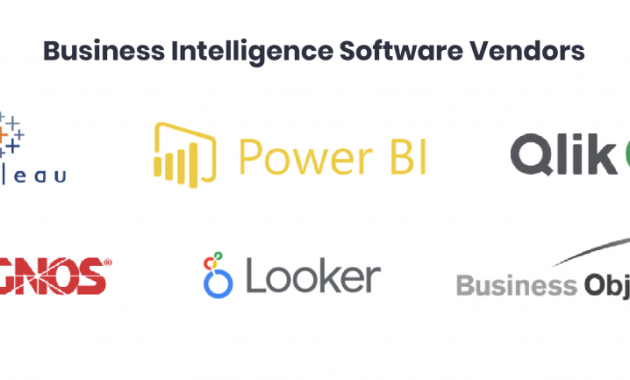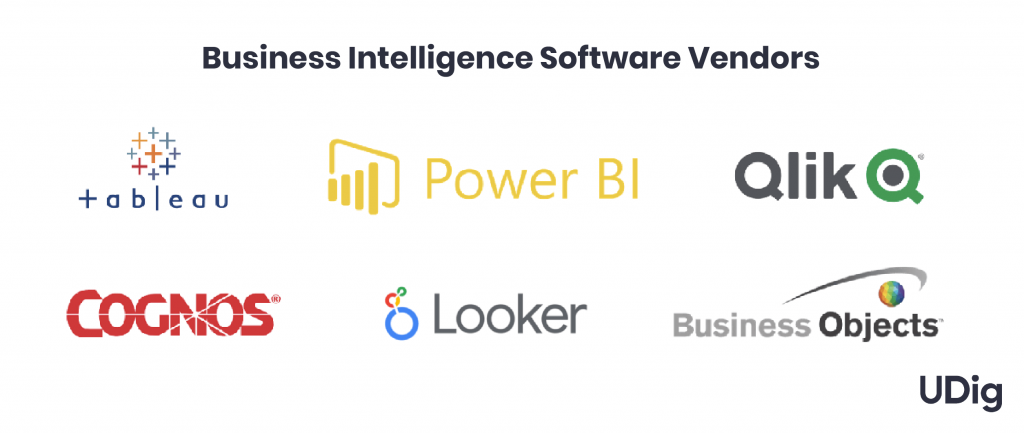
Business Intelligence Software That Outperforms Competitors: A Deep Dive
In today’s data-driven landscape, organizations are constantly seeking a competitive edge. This advantage often lies in the ability to extract meaningful insights from vast datasets. This is where business intelligence (BI) software comes into play. Choosing the right business intelligence software that outperforms competitors can be the difference between success and stagnation. This article delves into the critical aspects of selecting and implementing superior BI solutions.
Understanding the Power of Business Intelligence
Business intelligence software goes beyond basic reporting. It empowers businesses to analyze historical and current data. This analysis allows for informed decision-making. It also fosters proactive strategies. The core function of these tools is to transform raw data into actionable intelligence. This transformation enables businesses to identify trends, patterns, and anomalies. These insights drive improved operational efficiency, enhanced customer experiences, and increased profitability.
Key Features to Look For
When evaluating business intelligence software that outperforms competitors, several key features are paramount:
- Data Integration Capabilities: The software must seamlessly integrate with various data sources. These sources include databases, cloud platforms, and spreadsheets. Robust data integration ensures a comprehensive view of the business.
- Advanced Analytics: Look for features like predictive analytics, machine learning, and data mining. These capabilities allow for forecasting and identifying hidden opportunities.
- User-Friendly Interface: Intuitive dashboards and visualizations are crucial. They enable users of all technical skill levels to interpret data effectively.
- Scalability: The software should be able to handle increasing data volumes. It should also accommodate growing user bases. This scalability is essential for long-term growth.
- Security: Data security is non-negotiable. The software must provide robust security features. These features protect sensitive information from unauthorized access.
- Mobile Accessibility: Accessing data on the go is increasingly important. Ensure the software offers mobile access for real-time insights.
How to Evaluate Business Intelligence Software
Selecting the right business intelligence software that outperforms competitors requires a systematic evaluation process. Consider these steps:
- Define Business Needs: Clearly identify specific business challenges and objectives. This process helps determine the essential features.
- Research and Shortlist Vendors: Explore different vendors and their offerings. Create a shortlist of potential solutions.
- Conduct Demos and Trials: Request product demos and free trials. This allows hands-on experience.
- Assess User Experience: Evaluate the software’s ease of use and intuitiveness. User adoption is key to success.
- Evaluate Scalability and Integration: Ensure the software can handle future growth. Confirm compatibility with existing systems.
- Consider Total Cost of Ownership: Factor in licensing fees, implementation costs, and ongoing maintenance.
Leading Business Intelligence Software Solutions
Several vendors stand out in the business intelligence software market. These are often the ones that outperform competitors. Some of the top contenders include:
- Tableau: Known for its powerful data visualization capabilities and user-friendly interface. It is a favorite among business users.
- Microsoft Power BI: Offers a comprehensive suite of features. It is tightly integrated with the Microsoft ecosystem. This makes it a popular choice.
- Qlik Sense: Emphasizes data discovery and associative analytics. It excels in uncovering hidden insights.
- Looker (Google Cloud): Provides a data platform with a focus on data governance. It is designed for complex data environments.
- Sisense: Specializes in embedded analytics and data-driven insights. It is popular for building customized dashboards.
The Benefits of Choosing the Right Software
Implementing the correct business intelligence software that outperforms competitors offers numerous benefits:
- Improved Decision-Making: Data-driven insights lead to more informed decisions. This results in better outcomes.
- Increased Efficiency: Automation and streamlined reporting free up valuable time. This allows teams to focus on strategic initiatives.
- Enhanced Customer Experience: Understanding customer behavior allows for personalized experiences. This boosts customer satisfaction.
- Cost Reduction: Identifying inefficiencies and optimizing processes lead to cost savings. This improves profitability.
- Competitive Advantage: Staying ahead of the competition requires data-driven insights. This provides an edge in the market.
Real-World Examples of Success
Many businesses have achieved significant success using business intelligence software. These examples showcase the impact of selecting the right solution. For instance, a retail company used BI to optimize its inventory. This resulted in reduced waste and increased sales. A healthcare provider used BI to improve patient care. This led to better outcomes and patient satisfaction. These success stories underscore the importance of choosing the right tools.
Implementation Best Practices
Successful implementation of business intelligence software requires careful planning. Consider these best practices:
- Data Preparation: Ensure data quality and consistency. This is a crucial step for accurate analysis.
- User Training: Provide comprehensive training to all users. This maximizes the software’s potential.
- Phased Rollout: Implement the software in phases. This allows for adjustments and feedback.
- Ongoing Monitoring and Optimization: Continuously monitor performance and refine the system. This ensures optimal results.
- Change Management: Manage the transition to a data-driven culture. This fosters user adoption.
Future Trends in Business Intelligence
The business intelligence software landscape is constantly evolving. Several trends are shaping the future:
- Artificial Intelligence (AI) and Machine Learning (ML): AI and ML are being integrated into BI tools. This enables predictive analytics and automation.
- Cloud-Based Solutions: Cloud-based BI solutions are gaining popularity. They offer scalability and accessibility.
- Embedded Analytics: Integrating analytics directly into applications is becoming more common. This enhances user experience.
- Data Governance and Privacy: Data governance and privacy are becoming increasingly important. These are areas of focus for many companies.
Conclusion: Making the Right Choice
Selecting business intelligence software that outperforms competitors is a strategic decision. It can significantly impact business performance. By carefully evaluating needs, researching vendors, and following best practices, businesses can choose the right solution. This will empower them to unlock the full potential of their data. This process is essential for achieving a competitive advantage in today’s market. The right business intelligence software is a powerful tool. It enables informed decision-making and fosters growth.
To summarize, the key to success involves choosing the right business intelligence software. This software should meet your specific needs. It should also offer robust features, scalability, and security. By investing in the right solution, businesses can transform data into a valuable asset. This asset drives success and growth. This will also enable businesses to outperform competitors.
[See also: Related Article Titles]

